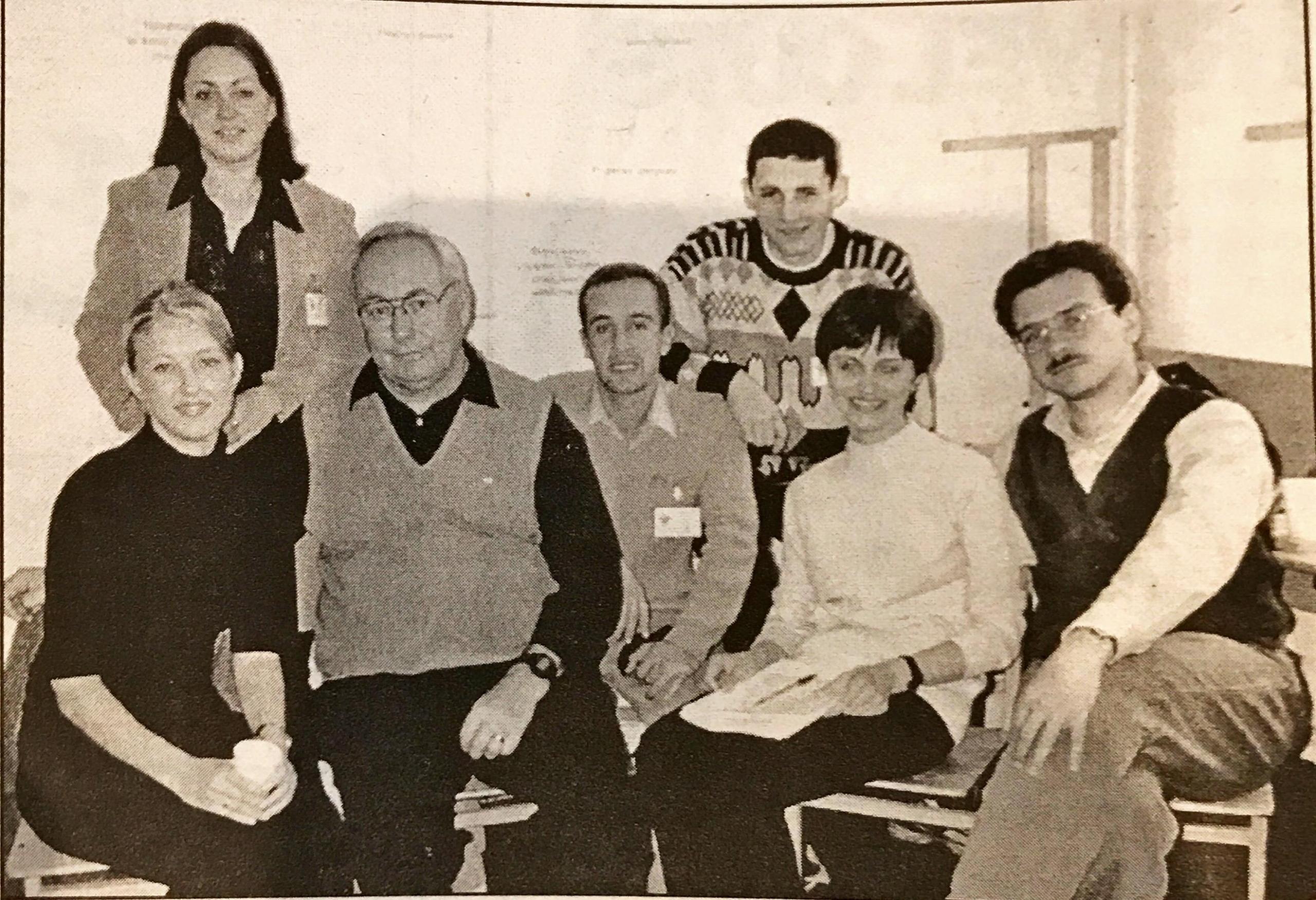By Craig Gibson
Seven months ago, Karolina Drabik left Toronto for post-communist Ukraine with one goal in mind: to help develop and improve the country’s community-based organizations.
The 23-year-old Ryerson urban and regional planning graduate is one of three full-time volunteers with the Canadian Bureau for International Education (CBIE), which works in the Ukraine as part of its Civil Society Community Roots Project.
The project’s aim is to improve the Ukraine’s grassroots organizations by offering community leaders hands-on training and allowing volunteer groups and non-governmental organizations (NGOs) to learn from Canadian volunteers such as Drabik.
“What we’re trying to do is build the capacity of the non-governmental organizations,” Drabik says over the phone from Lviv, Ukraine. “The whole concept of community development is new to Ukraine.”
The project’s $3.9-million budget is funded by the Canadian federal government through the Canadian International Development Agency (CIDA), which started in July 1998 and is set to run until 2002.
Drabik, who speaks Ukranian, left Canada in September and will spend a total of since months in Lviv.
She devotes most of her time to sharing her knowledge and experience at a resource centre used by community organizations in western Ukraine. She works closely with the centre’s leaders to help them think of their own ideas to tackle the problems of community development.
“I’m here as a sober second thought with a different perspective on things,” she says. “I’m not here to provide answers and solutions but to provide the tools and methods for these organizations themselves to come up with solutions.”
Since the Ukraine achieved independence after the fall of the Soviet Union in 1991, many of the country’s citizens have worked hard to start community groups to help improve their living conditions. Drabik says the biggest problem for her has been nurturing development in the post-communist country because in the past, ideas were stamped out by the Soviet government.
“[Ukrainian] have never been able to develop themselves,” she says. “They’ve always been told from the top what to do and it’s hard to overcome that kind of mentality.”
Tony Berezowecki, project manager for the Civil Society Community Roots Project, says the Ukraine had community organizations during the days of Soviet rule, but they existed only to promote communist values. It wasn’t until after independence that Ukraine’s voluntary community groups started taking off—from hardly any at the time of independence to 19,000 today.
“In Ukraine, what you have are just the beginnings of a civil society,” Berezowecki says. “It’s important for every person, whether in Canada or Ukraine, to take an active part in the functioning of their society. It’s not just casting a ballot and sitting back for four years.”
Drabik works with the youth organization Ptakh, which develops leadership skills among young people in Pustomyty, a small town outside of Lviv.
Drabik is helping the group organize itself, define its goals and develop a plan of attack. She says Ptakh’s 25 members are eager to make a difference in their community but they don’t have a clear focus yet. She considers her role as helping them brainstorm.
“It’s important for people to go through a process of development,” she says. “[My] answers are not necessarily the right answers for them. The people in the community groups know all these ideas but don’t know how to make it tangible.”
The Civil Society Program goes beyond a few Canadians living in the Ukraine and sharing their experiences.
Ukrainians have also come to Canada to learn lessons they can apply back home.
Yuriy Savko, project co-ordinator at the Ukrainian resource centre where Drabik volunteers, is learning the best methods of tackling conflict resolution in an Ottawa classroom.
With two other Ukrainians from Lviv, Savko is spending two-and-a-half months at the Canadian Institute for Conflict Resolution. He will then take what he learns back home to educate community leaders and students at Lviv State University.
The CBIE helps Ukrainians develop courses for NGOs in financial management, community development, human resource management, strategic planning and marketing and public relations—all trying to teach professionals who will run grassroots voluntary organizations in the future.
“This is very important because the non-profit sector is a growing sector and Ukraine needs professionals in this area,” Savko says. “Not just in the government economic sectors.”










Leave a Reply